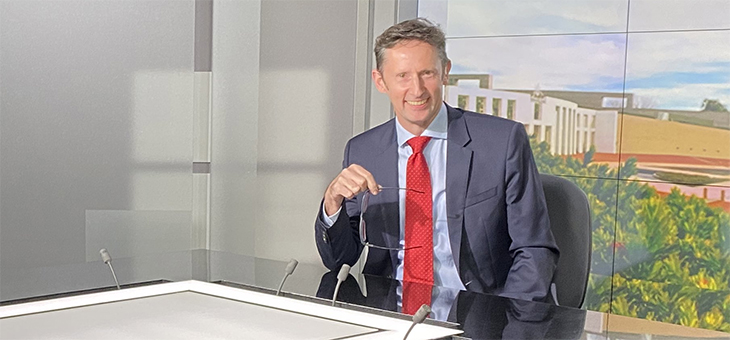Labor says it will block the superannuation changes announced in last week’s Federal Budget unless a “massive design fault” built into the system is fixed.
In a speech to the Australian Institute of Superannuation Trustees (AIST), Labor’s shadow assistant treasurer, Stephen Jones, explained that the changes that were meant to improve the transparency of super funds “only measured half of the fees” employees are actually charged.
Mr Jones said Labor was committed to addressing the huge gap between the highest and lowest performing superannuation funds, costing the average worker as much as $600,000 in lost retirement savings. However, Mr Jones said once the detail of the government policy had been analysed it did not properly measure the fees charged by the relevant super funds.
“The productivity commission has found that the fees and charges can be costing an average worker as much as $100,000 a year in retirement savings,” Mr Jones said. “When the government announced in the budget papers that it was going to address these issues, Labor met it with some enthusiasm.
“We wanted to ensure that there was no safe harbour for an underperforming fund. We’re on board for that project.
“Unfortunately, as with so many things with this government, there is a huge gap between the promise and the follow-up.”
The government’s budget announcement last week included the provision for the tax office to develop a tool to compare and select a super fund from the MySuper shortlist.
From July 2021, the Australian Prudential Regulation Authority will conduct tests of the funds on the shortlist to find the ones that underperform for two consecutive years and block them from receiving new members until they improved.
However, Mr Jones said the government’s proposals only measured investment fees and did not measure administration fees, which was meant they were flawed.
“This is a massive design fault which runs the risk of enabling funds to divert costs and charges from one line item to another without addressing the underlying problem of high fees,” Mr Jones said.
“In other words, members can and most likely will still lose out from oversized fees.
“They will have to fix this glaring anomaly.
“The productivity commission has found that the gap between a high and a low-charging fund on administration fees can be as much as $100,000 lost in retirement savings.
“That’s a massive amount, and yet the government is saying it’s going to ignore that part of the fee structure.
“On the face of it, this looks like a monumental stuff-up. The government said that they are for performance, but they are ignoring half the fees that are charged within the industry.”
One of the other superannuation proposals outlined in the Budget included allowing superannuation funds to follow members around when they changed jobs.
Mr Jones said Labor supported the idea of getting rid of multiple accounts but would need to see the detail to ensure workers were not “stapled to a dud fund”.
“If the government decides to staple workers to a dud fund, they are sentencing that worker to poverty in retirement,” Mr Jones said.
AIST chief executive Eva Scheerlinck also said that the industry would need to see more details about how individuals would be stapled to a super fund for life.
“We need to ensure that people are not in danger of being mis-sold or stapled to an underperforming fund outside the default system,” Ms Scheerlinck said.
“In particular, we are concerned that the scheme does nothing to protect people who are already in dud funds.”
Ms Scheerlinck also said there were concerns about how the insurance policies would work if superannuation funds followed workers who changed industries throughout their career.
“For instance, someone whose first out-of-school-job is working in call centre who then goes on to work in the mining industry may be stapled to a fund where they don’t qualify for insurance protection,” Ms Scheerlinck said.
The AIST also called on the government to abolish the $450 monthly income threshold and consider a one-off contribution to super accounts of low-income earners who accessed their super early.
What do you think of the government’s proposed superannuation changes? Should any measurement tool take all fees and charges into consideration?
If you enjoy our content, don’t keep it to yourself. Share our free eNews with your friends and encourage them to sign up.
Related articles:
https://www.yourlifechoices.com.au/finance/superannuation/carryforward-super-contributions
https://www.yourlifechoices.com.au/finance/superannuation/superannuation-essentials
https://www.yourlifechoices.com.au/finance/superannuation/continuing-to-make-super-contributions

